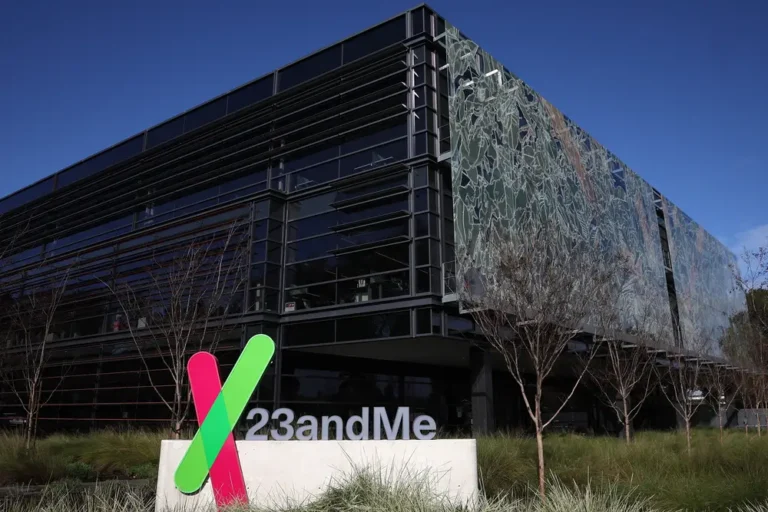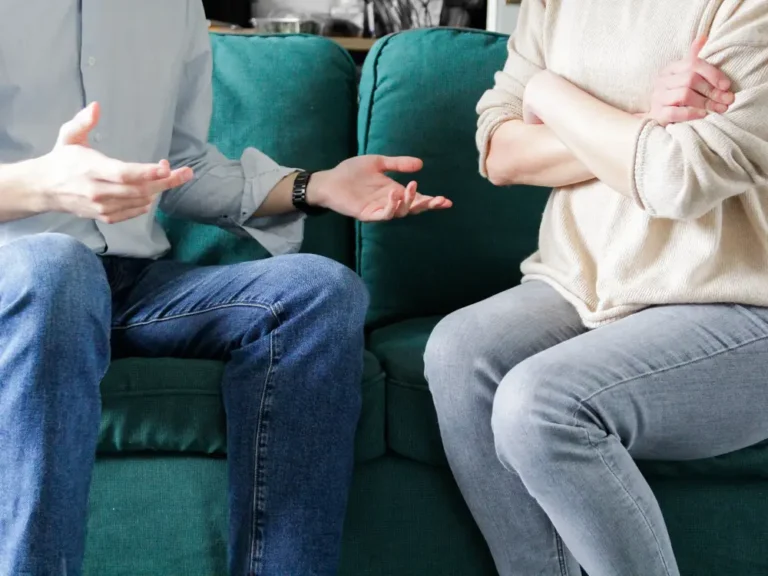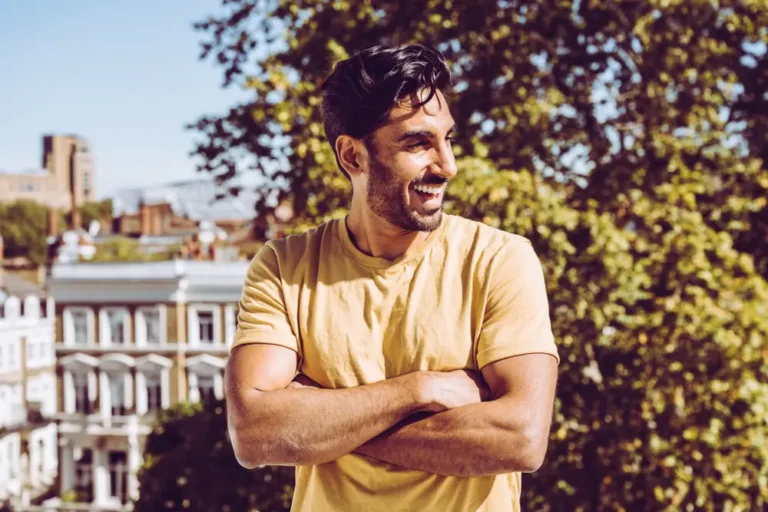A 71-year-old champion sprinter didn’t start until she was 57. She shared 4 tips for getting fit at any age.
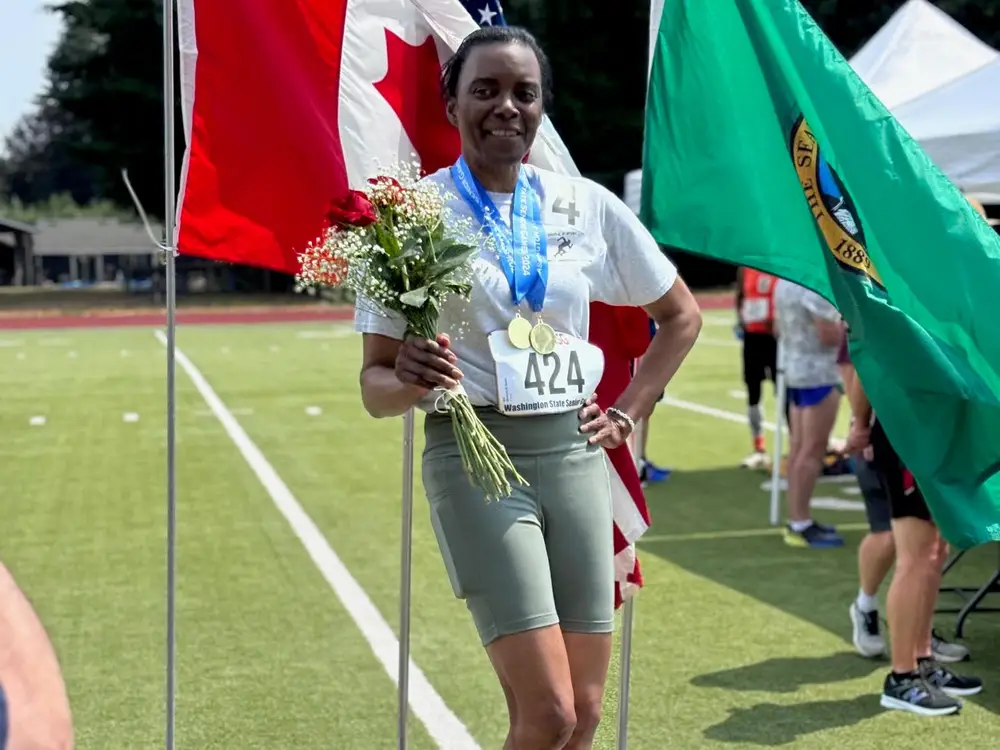
Madonna Hanna won gold at this year’s Senior Games for sprinting.
When Madonna Hanna was 57 in 2010, she suddenly got the urge to run. She could already jog for an hour at a time, but she wanted to run fast. Fast forward to this year, and, at the age of 71, Hanna has plenty of medals and a state record for sprinting under her belt.
Hanna, based in Washington State, told B-17 that when she got the “god-inspired” urge to start sprinting, she turned to her husband for help. The high school track coach got her doing drills like running up and down hills with a weighted backpack and ankle weights.
By 2011, Hanna was fast enough to compete in the Washington State Senior Games, a sports competition for people over 50. The next year, she competed at the National Senior Games, which she has done three more times since. At the 2023 games, she won a gold medal as part of a four-by-100 meter relay team, and this year, she broke the Washington State record for athletes aged 70 to 74 in the 50m sprint.
Although she’s almost 15 years older than when she started sprinting, Hanna believes she hasn’t reached her peak.
“The last two years with my present coach, he has taken me from the middle of the pack in the National Senior Games to the top five in my age category nationally,” she said.
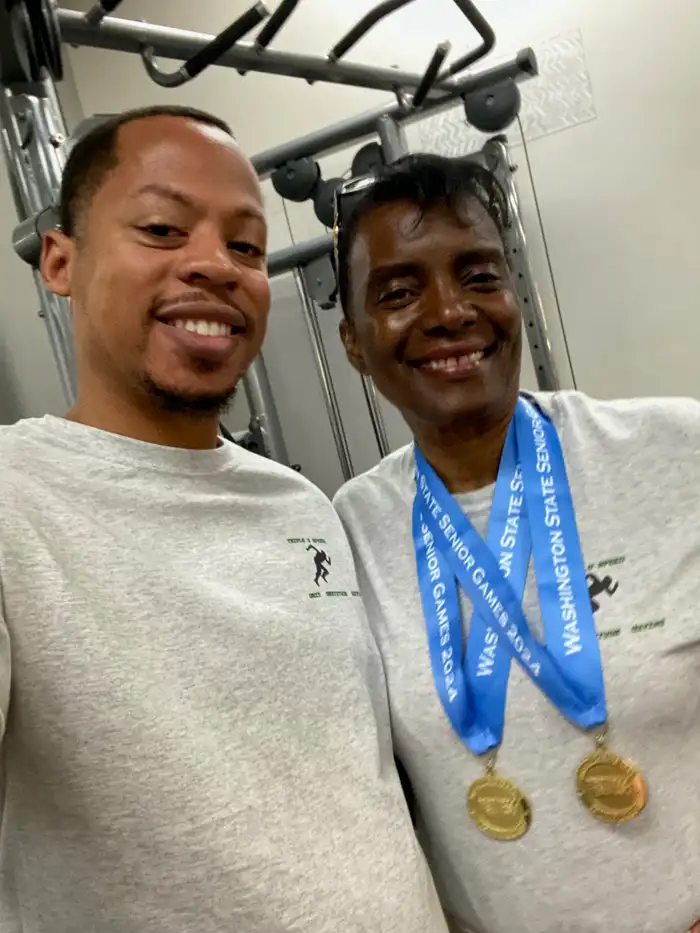
Hanna and her coach, Marcus Chambers, after she won gold at the 2024 Senior Games.
In Hanna’s view, “it’s never too late to soar for more,” and she hopes her story will motivate others to start exercising, no matter how old they are.
Soaring for more is good for our health, too. A 2021 study published in the British Journal of Sports Medicine found that people who started exercising later in life had a similarly lowered risk of dying from cardiovascular disease as people who had exercised for their entire lives.
Hanna has three tips for people wanting to get fit, no matter their age.
Pick an exercise you enjoy, and make time for it
“I’m not saying don’t have fun, but when you’re young, you’ve got to take that time to do walking, jogging, running, hiking, bowling — whatever you want, but you have to just get out there and become engaged in thinking about your longevity,” Hanna said.
Experts agree: Nathan K. LeBrasseur, a physiologist at the Robert and Arlene Kogod Center on Aging at Mayo Clinic, previously told B-17 that although aerobic and resistance exercises are especially good for longevity, the best type of exercise you can do is one you enjoy enough to do consistently.
“I feel a sense of accomplishment. I have a sense of purpose and destiny when I get up in the morning,” Hanna added.
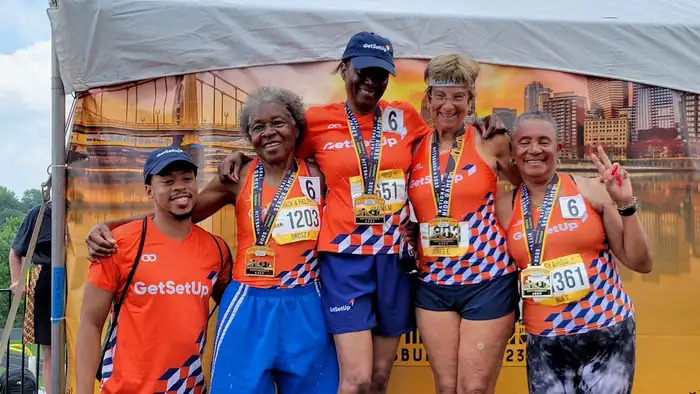
Hanna won gold in the four by 100 metres with her relay team at this year’s National Senior Games.
Take baby steps
You can’t just get up off the couch and run a marathon, Hanna said: You have to “take baby steps,” “be patient with yourself,” and “listen to your body to find a level you’re comfortable with.”
She also recommended asking experts such as doctors or trainer for advice on how to start out and avoid injury.
“I am still learning to be a sprinter. Yes, I have had success, but I am still learning so don’t compare yourself to other people,” she said.
Bryan Goldberg, a personal trainer, previously told B-17 that it’s best to start out “slow and steady” when beginning to exercise, because it’s more sustainable in the longer term.
Eat plenty to fuel your body
Hanna said she eats more when she’s exercising. Hanna used to run out of energy during training, but has changed her diet “drastically” to better fuel her body.
She eats a lot of fruit and vegetables, such as leafy greens and blueberries, as well as sources of lean protein like salmon and cottage cheese.
While the ideal diet is different for everyone, Mike Molloy, a nutrition coach, previously told B-17 that people who do high-intensity exercise need to ensure they are eating enough to fuel their bodies and avoid muscle loss.



